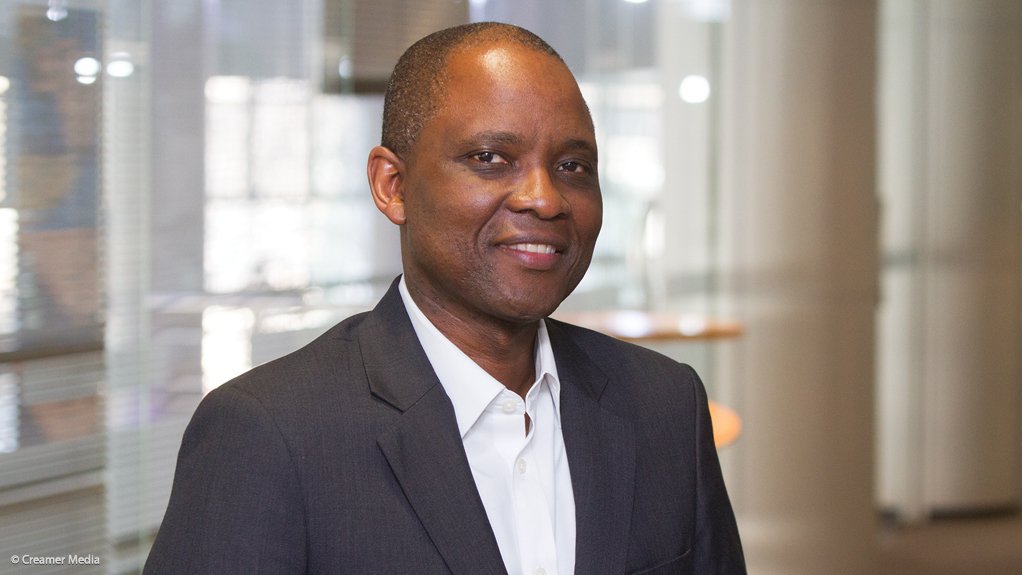Exxaro CEO calls for nation to rethink BEE ownership, warns not to repeat past mistakes
CAPE TOWN (miningweekly.com) – A new way of looking at black economic empowerment (BEE) ownership is needed to avoid the “pain and frustration” that has been experienced in the past, suggests Exxaro CEO Mxolisi Mgojo.
“As leaders of one of the country’s largest employers, we should reassess current empowerment initiatives . . . We must evaluate what has worked and what has not worked,” Mgojo told delegates at the Investing in African Mining Indaba in Cape Town.
He said a review of BEE ownership was necessary to create sustainable black ownership and broader and meaningful participation by black shareholders in the economy.
“We need to find the right balance between the size and level of black ownership. More flexible and less geared structures will enable black shareholders to maximise their returns.”
Mgojo said the journey of black shareholders had largely been disheartening over the past two decades. “The restrictive lock-up period restrained black investors from reducing debt. Highly encumbered deal structures have destroyed value and disempowered shareholders.”
He said there were casualties in the mining industry resulting from poor BEE structures. Significant value was lost as they were unable to trade.
“One of the key challenges of the first wave of empowerment was that impressive black-owned and -controlled conglomerates were built, yet many turned out to be unsustainable. They were controlled by the whim of financial markets. Many collapsed under financial alchemy. We haven’t learnt the lessons of these painful collapses.”
Mgojo said a resulting challenge was that most aspiring black entrepreneurs still did not have capital at the levels envisaged.
“Most empowerment structures were designed to provide equity return when there was no real equity ownership. That is a recipe for tears and frustration – and that is precisely the experience of BEE.”
Exxaro’s tenth anniversary in 2016 marked the end of the company’s 50.19% BEE ownership structure. Under a new BEE scheme, its BEE ownership stands at 30%, which is higher than the 26% required under mining legislation, but below the 51% black ownership that power utility Eskom, to which Exxaro supplies coal, is seeking when it signs new coal supply agreements.
Mgojo said concerns from commentators were not necessarily about Exxaro or its chosen level of black economic empowerment, but pointed to larger, unresolved issues relating to such ownership generally.
“The conversation must move from restrictive ideas about fixed black equity in white companies. Are we really saying we demand 30% to 40% of black ownership regardless of the size of the company?” he asked.
He said his goal should be to create sustainable black ownership and thereby help to drive down the very serious inequality in the country.
“We will develop and lead this conversation to collectively address the concerns, not only for Exxaro but for future empowerment transactions in the country,” said Mgojo.
He said companies had realised the need to create equity, with some companies now representing real, tangible black-owned wealth, among them African Rainbow Minerals, Kagiso Holdings, Wiphold and the Women’s Development Bank.
Mgojo called for better cooperation between government, business and the financial services sector, saying policy should be enabling rather than prescriptive.
“We need to learn from the lessons of the past 24 years. While we remain ambitious in our transformation efforts, we must remain realistic in the transformation of our economy . . . be pragmatic and focus on achievable solutions.
“By all means, talk about the evolution of BEE but let conversation be less emotional and reactive. One must learn from the past to create hope for the next generation. It would be a crying shame if we continue to repeat the mistakes of the past.”
Comments
Announcements
What's On
Subscribe to improve your user experience...
Option 1 (equivalent of R125 a month):
Receive a weekly copy of Creamer Media's Engineering News & Mining Weekly magazine
(print copy for those in South Africa and e-magazine for those outside of South Africa)
Receive daily email newsletters
Access to full search results
Access archive of magazine back copies
Access to Projects in Progress
Access to ONE Research Report of your choice in PDF format
Option 2 (equivalent of R375 a month):
All benefits from Option 1
PLUS
Access to Creamer Media's Research Channel Africa for ALL Research Reports, in PDF format, on various industrial and mining sectors
including Electricity; Water; Energy Transition; Hydrogen; Roads, Rail and Ports; Coal; Gold; Platinum; Battery Metals; etc.
Already a subscriber?
Forgotten your password?
Receive weekly copy of Creamer Media's Engineering News & Mining Weekly magazine (print copy for those in South Africa and e-magazine for those outside of South Africa)
➕
Recieve daily email newsletters
➕
Access to full search results
➕
Access archive of magazine back copies
➕
Access to Projects in Progress
➕
Access to ONE Research Report of your choice in PDF format
RESEARCH CHANNEL AFRICA
R4500 (equivalent of R375 a month)
SUBSCRIBEAll benefits from Option 1
➕
Access to Creamer Media's Research Channel Africa for ALL Research Reports on various industrial and mining sectors, in PDF format, including on:
Electricity
➕
Water
➕
Energy Transition
➕
Hydrogen
➕
Roads, Rail and Ports
➕
Coal
➕
Gold
➕
Platinum
➕
Battery Metals
➕
etc.
Receive all benefits from Option 1 or Option 2 delivered to numerous people at your company
➕
Multiple User names and Passwords for simultaneous log-ins
➕
Intranet integration access to all in your organisation





















